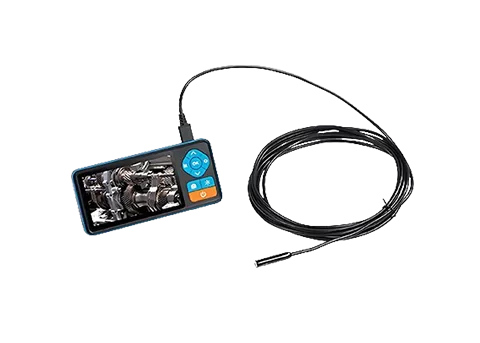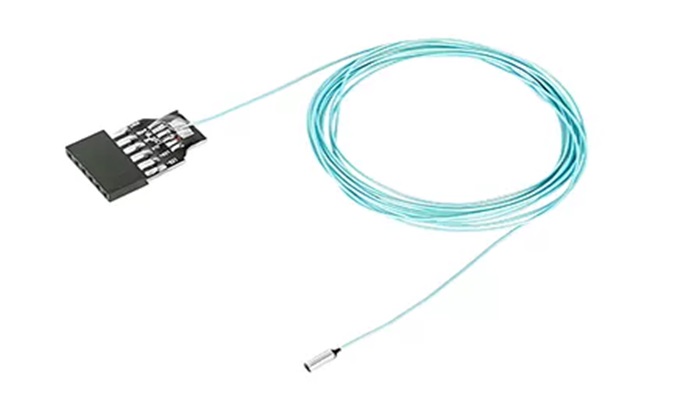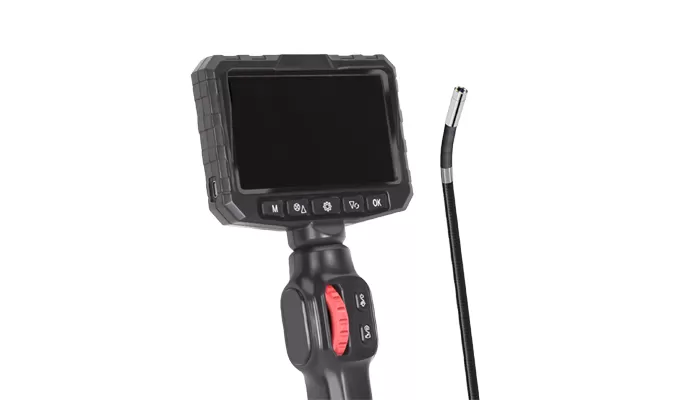In veterinary clinics and field settings, clear visualization of the larynx and airway is critical for intubation, airway evaluation, and diagnosing upper respiratory conditions. A veterinary video laryngoscope provides veterinarians with an illuminated and magnified view of the glottis, enabling safer and more accurate procedures.
MAIYIS offers an advanced veterinary video laryngoscope (also known as a veterinary screen laryngoscope) that integrates a high-definition camera and display, providing real-time visualization of the laryngeal region. This helps reduce complications and improves procedural success across a wide range of veterinary applications.
Why Veterinary Video Laryngoscopes Matter in Small Animal Practice
This type of laryngoscope is especially valuable in small animal practice—cats, dogs, and exotic pets—where anatomical variations make blind placement of airway tubes risky. By incorporating imaging features directly into the laryngoscope, practitioners can visually confirm tube placement instead of relying solely on tactile feedback or indirect techniques.
Design Features of the MAIYIS Veterinary Video Laryngoscope
What separates a high-quality veterinary laryngoscope from a conventional blade is the built-in imaging system. The MAIYIS veterinary video laryngoscope includes a slender angled blade (4–8 mm in diameter) attached to a handle that houses the integrated display unit. The device displays a live 720p video stream on a built-in 3.5-inch LCD screen, allowing the operator to clearly view the vocal cords and surrounding airway structures.
Key technical features include:
Slim angled blade for easier navigation in small animals
Real-time HD video feed for precise airway visualization
Portable and ergonomic design for veterinary workflow
Use Cases and Clinical Benefits
A veterinary video laryngoscope is not just for routine intubation during anesthesia; its applications extend to:
Airway examinations and diagnostics
Foreign body removal
Detection of swelling, polyps, tumors, or lesions
Real-time imaging support during complex surgeries or emergencies
Being able to directly visualize the larynx reduces the risk of trauma, tube misplacement, or hypoxia. In addition, the video feed can be recorded, captured, and annotated to support teaching, teleconsultation, and medical record keeping. MAIYIS highlights that the video function is particularly useful for documenting airway lesions during procedures.
This dual role—as both a procedural tool and a documentation device—makes the veterinary video laryngoscope especially valuable in teaching hospitals, research facilities, and telemedicine consultations where images are shared with specialists.
Types of Veterinary Laryngoscopes
MAIYIS's product line illustrates that veterinary laryngoscopes are available in multiple forms:
Veterinary Video Laryngoscope (Rigid Screen Type): Features a rigid angled blade with built-in imaging and LCD display (PIE-SL01 model is one example).
Veterinary Flexible Laryngoscope: Designed with a bendable shaft to navigate complex airway anatomy, ideal for difficult intubations or smaller exotic species.
Key Considerations When Choosing a Veterinary Laryngoscope
When selecting a veterinary laryngoscope, practitioners should evaluate:
Blade diameter and curvature (for species-specific use)
Video resolution and frame rate
Illumination strength
Durability (materials and waterproof sealing)
Ergonomics and operator comfort
Compatibility with external displays or built-in screens
Sterilization methods and material resilience
Since laryngoscopes frequently come into contact with bodily fluids, waterproofing and corrosion resistance are essential. MAIYIS's veterinary video laryngoscope addresses these concerns with a compact slim blade, anti-corrosion materials, HD video capability, and a lightweight portable design.


